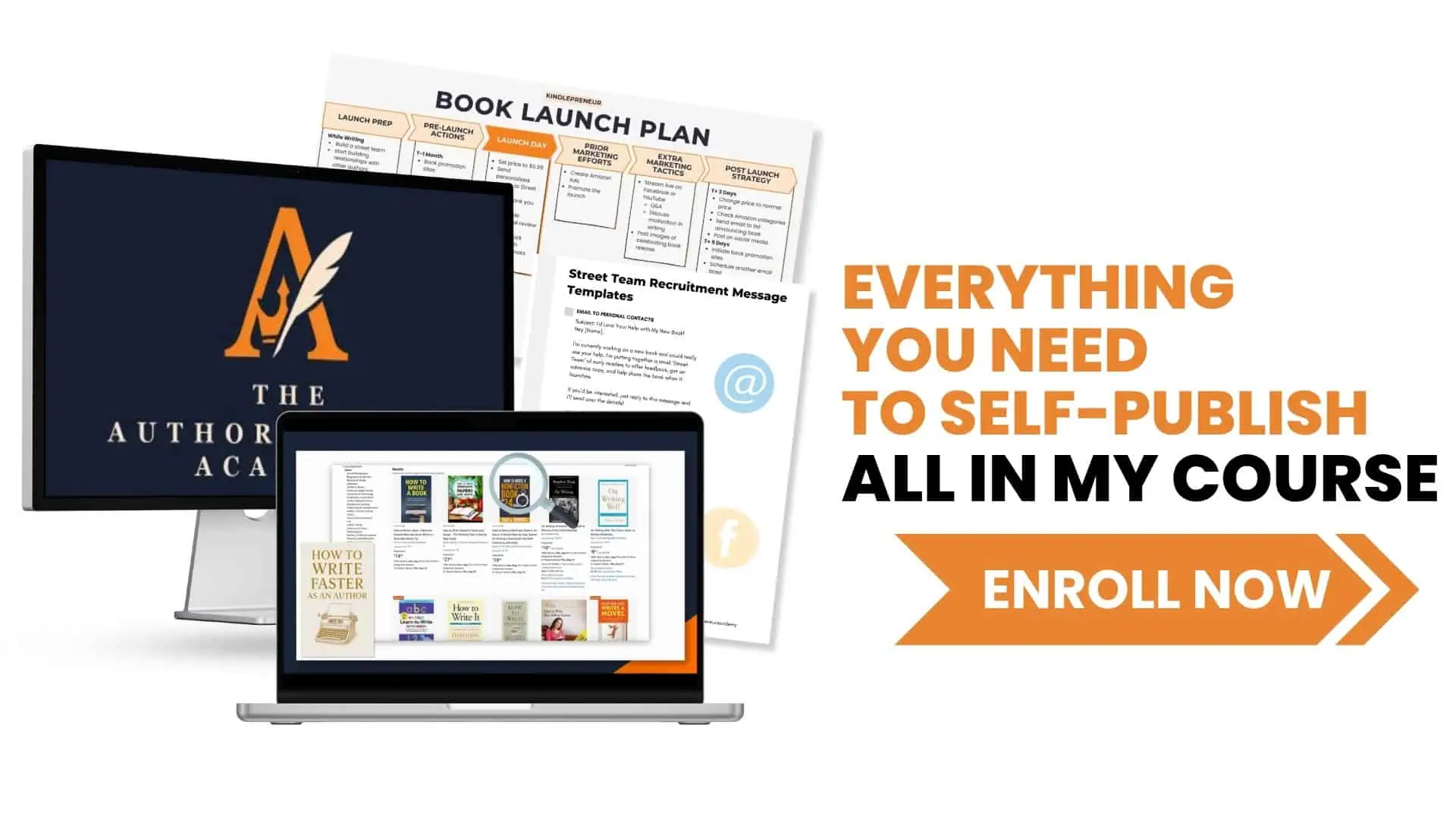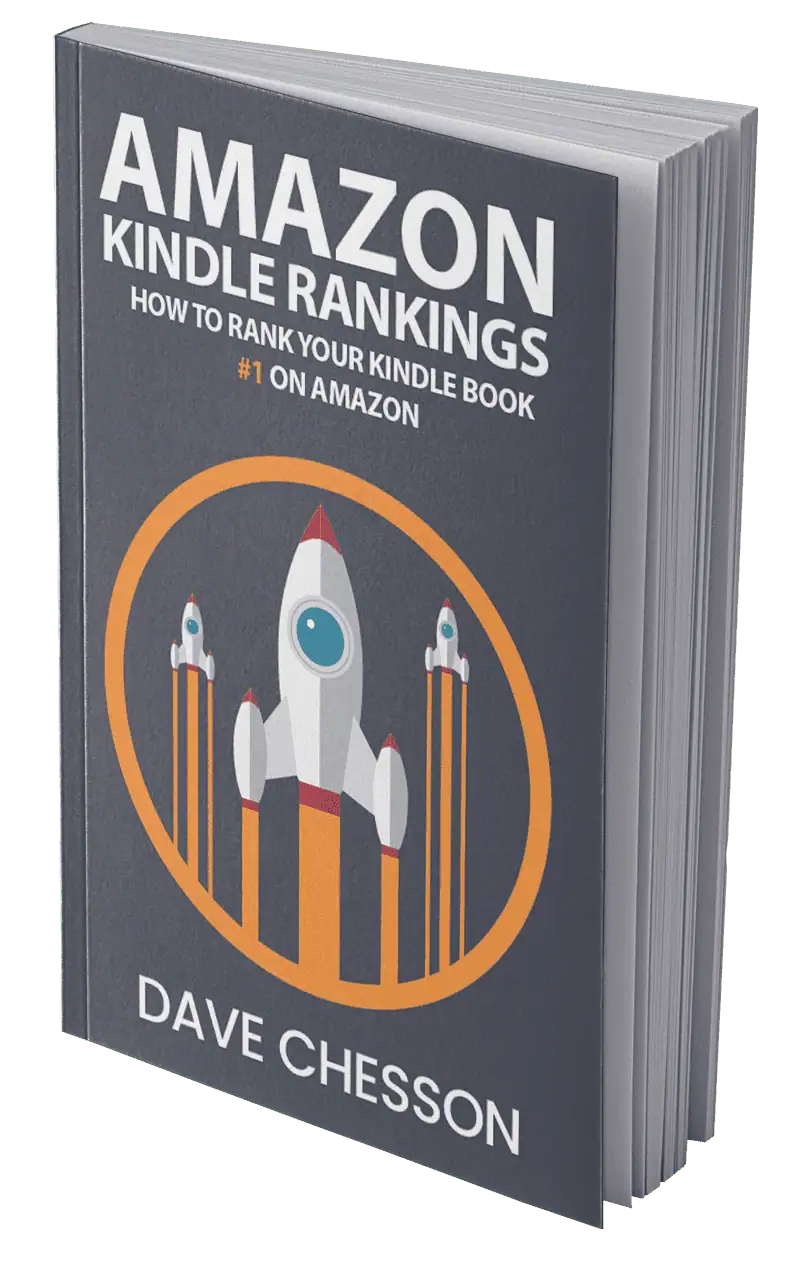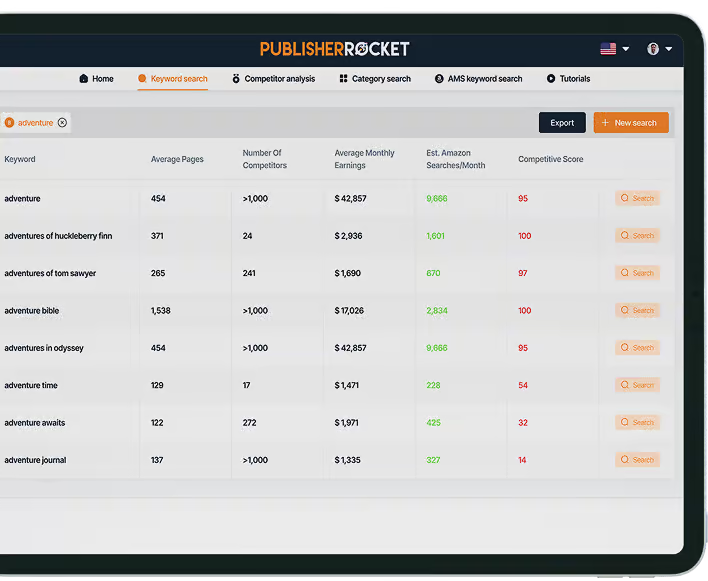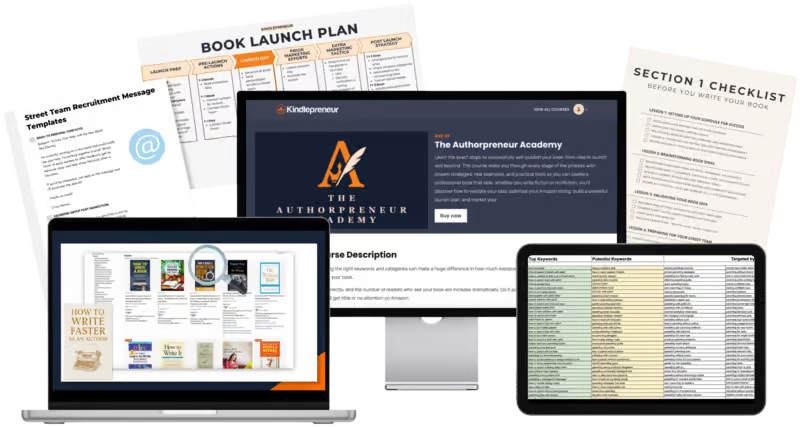In 2024, Amazon silently updated their guidelines for book keywords, adding three new ones, as well as adding more clarifying information on each of them.
As a result, better understanding these guidelines can be crucial to helping us better understand keyword optimization for our books.
As we've seen through discussions with Amazon (and through personal experience), some of these guidelines are really just recommendations, while others are hard and fast rules that, if violated, can get your book taken down until it's corrected.
So, understanding which ones are rules as opposed to guidelines/recommendations is actually key.
Therefore, this article will break down the new rules and provide you with actionable advice on how to use your keywords effectively.

- The three new Amazon book keyword rules introduced in 2024.
- How to effectively use keywords without violating Amazon’s guidelines.
- The difference between hard rules and guidelines for keywords.
- Tips for optimizing your book’s keywords to boost visibility and sales.
- Common mistakes to avoid when selecting your keywords.
What are Amazon's Keyword Rules or Guidelines Anyway?
First, let's discuss what these guidelines really are.
When we go to fill in our 7 KDP keyword boxes, Amazon takes this information and uses it to help figure out where to put our book in their store, and under what search terms to show your book for.
However, there are situations where this can be problematic. Let's say your book is about a young princess, but your book shows up for Disney princesses. From the shopper's experience, this can be misleading. Or lets say your book shows up for audiobook searches, but you don't have an audiobook.
And while we hope that Amazon's algorithm and systems can figure this out, the existence of these rules just goes to show how important your keywords can be in influencing Amazon to put your book in the appropriate places.
So, instead of Amazon trying to fix their algo, they instead ask us to follow certain guidelines or rules so that their results aren't misleading. But, as you'll see, some are hard rules where, if you break them, they will either flag or remove your book.
So, let's now break down each one, and list what they are.
Understanding the Full Scope of Amazon’s Keyword Rules
1. Information covered elsewhere in your book's metadata:
Amazon advises against using information already covered in your book’s metadata, like the title or contributors.
This is more of a guideline to help you use your keyword slots more effectively. This isn't to say you can't re-use a word that is already in your title or subtitle. It is just there to let you know that if that word or phrase is somewhere else, you don't need to waste a space in your 7 KDP keyword boxes on it.
Now, I should note that I personally don't go out of my way or worry if a word is also in my 7 KDP Keyword boxes.
For example, lets say my book's title is “Dragon Riders” and I want to add the keyword “Epic dragon battles”. I won't remove the word dragon just because it is also a word in my Title. However, I won't put “Dragon Riders” as a keyword in my 7 KDP Keyword boxes. If I want to be a little more clever though, I could change out dragon with wyvern or another ‘dragon' type term.
(Also, apologies to all major fantasy readers, yes, I definitely know the different between dragons and wyverns).
One thing to note is that if you do repeat a keyword, Amazon usually doesn't flag it. So, this one is more of a recommendation for your benefit.
2. Words already mentioned in your book's categories:
Both this rule and the previous one are the same. If the words are in your category, then you don't need to use it.
HOWEVER, that doesn't mean you shouldn't try to put in category specific words if you want to stay in that category. As I discussed in my article on Amazon Categories, Amazon says that they can and will change your categories if they feel like it. My team and I found out that this occurs when your keywords don't match up for the category you are selecting.
When this occurs, they decide to move you to a category where your keywords match up. That's why it is important to use keywords that Amazon associates with that category in one of your 7 KDP Keyword boxes.
If you have Publisher Rocket, this is incredibly easy.
When looking at your category, you can click on “keywords” and Publisher Rocket will give you a list of keywords that are associated with that Category that we know Amazon likes to see… thus making sure you stay in your desired category.
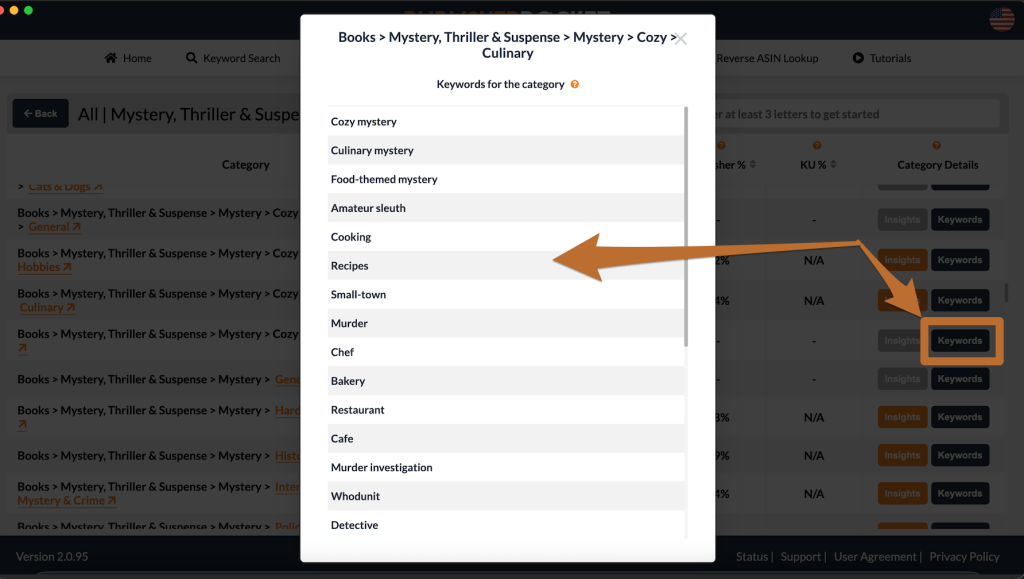
If you haven't done that, and you're sick of Amazon moving your book to categories you didn't select, then you should give that a try.
3. No Subjective Claims or Time-Sensitive Statements:
In this guideline, they want you to avoid making any claims about your book’s quality or anything that is time-sensitive. This would be phrases like “bestseller” or “best scifi book” etc.
Generally, Amazon doesn't want to get into the problem where people can say “I typed in best sci fi” and Amazon gave me this book. So, they just don't want to possibly get in trouble for that sort of result.
Unlike the guideline above, this one is probably more of a rule since it can get them into trouble. There are certain popular words that their system will automatically flag if you use it, and can request you change it.
4. Information common to most items in the category:
Amazon says we should try to avoid using keywords in our 7 KDP boxes like “book” or “audiobook” that are common to most items in the category.
This rule aims to prevent confusion in search results, but sometimes these words can be necessary, such as in “workbook” or “Book of Enoch.”
All Amazon is trying to do is make sure that someone doesn't use “paperback” in their keywords even though they don't have a paperback version. That way, non paperbacks won't show up for search phrases that include paperbacks. Amazon can see whether you have a paperback version or not.
So, ultimately, they're just asking that you don't confuse their system.
Now, there is good news to this in case you are doing your keyword research and see a great keyword phrase but it includes “paperback” or something like that in it. If you have a paperback version of your book, then Amazon knows this and acts accordingly. Here an example to explain what I mean:
Let’s say your target or root keyword is “cozy mystery”.
With Rocket, you’ll might see:
- Cozy mystery
- Cozy mystery books
- Cozy mystery kindle books
- Cozy mystery books paperback
- Etc.
Since your book probably has a paperback version and a Kindle version, and Amazon knows this, if you rank for Cozy Mystery your book will automatically rank for the others listed as well, even if you didn’t put those words in your 7 KDP keyword boxes.
Which means that when doing your keyword research, and you see something like this, you can combine the total amount of searches for all of those keywords into one.

Generally, I've seen them reject a book that includes a clearly book format term in it. But that's only been about 20% of the time. In most cases, they don't say anything. But just keep this in mind.
5. Spelling and Variants:
Amazon’s algorithm already accounts for spelling errors, pluralization, and spacing variations. So, using different spellings or misspellings is actually more of a waste of your 7 KDP keyword spaces.
I haven't seen them flag or take down a book on this, so I think this is more of a recommendation to keep you from wasting your 7 KDP keyword boxes.
6. Any Misrepresentation:
Generally, Amazon just wants to make sure you didn't set a bunch of keywords that are incorrect or misleading.
They say a title of a book; however, this is hard for them to pinpoint because it would have to be a super famous book like “Harry Potter” or something like that for them to balk at your keyword. An example is that there is a book called “Battle Mage”. That's also a great keyword.
In this case, it wouldn't be an issue to use Battle Mage as a keyword.
7. Brands that you do not own or Amazon program names like “Kindle Unlimited:
In addition to avoiding brand names you don’t own, avoid using Amazon program names like “Kindle Unlimited” or “KDP Select.”
This is a hard rule and if you do do this, their system is pretty good at flagging it – especially when it is their name (like Kindle Unlimited or Amazon). They're pretty good at super famous names like Disney or Google too. But they aren't as good with other less prominent phrases and terms.
8. Avoid Quotation Marks:
Using quotes around phrases limits Amazon’s search to the exact phrase, reducing your visibility. Instead of “epic adventure hot romance,” use the words without quotes to get indexed for all possible combinations.
This isn't a rule, it's more of a helpful recommendation. What's funny is that I've been telling people to not use quotations for this very reason (see boolean search criteria if interested in the techy explanation) for years. And now they finally admit it.
So, if you use quotations, you're severely hurting your book's reach potential on the market.
9. No HTML:
As mentioned earlier, avoid using HTML in your keywords to prevent technical issues.
If Amazon sees code in the 7 KDP keyword boxes, they usually flag this and warn the author. So, just a heads up.
Tips for Optimizing Your Amazon Book Keywords
Above, we covered things you should avoid, like duplicate keywords, brand and trademark issues, and html code. Below, we'll cover ways you can optimize your book keywords to drive higher visibility and sales.
I've listed three tips below, but be sure to check out this article on how to change your amazon kindle keywords.
• Research Your Keywords: Use tools like Publisher Rocket to find effective keywords and phrases that will keep you in the right categories.
• Think Like a Reader: Consider what words potential readers might use to search for your book.
• Avoid Redundancies: Use each keyword slot wisely without repeating information already in your metadata or category strings.
By following these guidelines, you can make the most out of your Amazon book keywords and ensure your book reaches the right audience.



